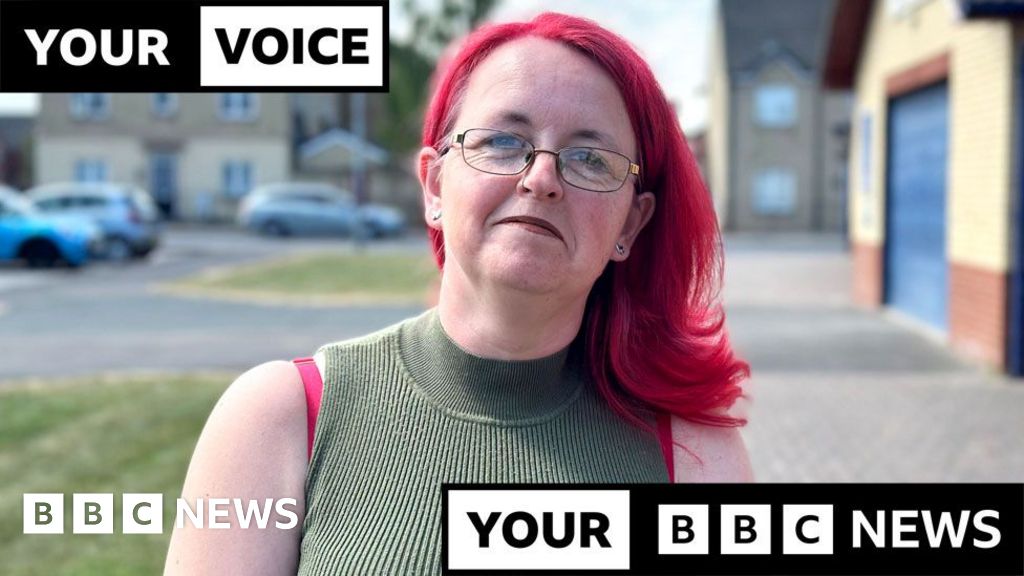Wall displaying pictures of people still held hostage in Gaza, on October 26, 2023 in Tel Aviv, … [+]
Getty Images
We begin this holiday season with the convergence of multiple massive global crises and technologies that are unlike anything any country or people have faced before in history. Because women are the frontlines of their communities – and because abusing them has become a weapon of war – it’s important to from women who had to make the tough calls with thousands, even millions of lives at risk.
Photo of the Awardees of Georgetown Women, Peace & Security – 10-5-2023. As named in photos.
Screenshot, Georgetown Institute For Women Peace and Security
Former Secretary of State Hillary Rodham Clinton told a crowd at the Georgetown Center for Women Peace and Security last month that, “The biggest challenge to women is men starting wars. When men fight for a long time, it’s what they know to do.” She was presenting awards in her name to four courageous women who work for peace.
Women are much more at risk in war “simply because of their gender.”
Global Citizen reports that women are at the greatest risk in war and violent conflict. “Simply because of their gender, women and girls caught in the middle of war experience sexual violence, physical and verbal abuse, and barriers in accessing resources and having their human rights met; this is of course all on top of being directly exposed to conflict on the front lines and facing life-threatening conditions.”
Screenshot – UN graphic of violence against women in conflict – un.org
un.org/sexualviolenceconflict
UN Women reports the same, and that the data on the impact of war on women is inaccurate: “Attacks against women human rights defenders are extremely under-reported and anonymized in official United Nations statistics.”
That’s why women need to be at the table crafting responses and solutions today.
How should business leaders respond?
Here are insights on managing global crises from five influential women who have sat at those tables and made the hard choices to resolve them:
Susan McPherson
Copyright: Christopher Farber 2010
· Take a stand: “Companies are not just being more strategic about corporate social impact, but are taking on the role of activists themselves,” Susan McPherson, CEO of communications and social impact firm McPherson Strategies summarized in a McPherson Memo. “Consumers and employees now expect companies to be vocal and to protect the rights of our people and our planet. CEOs are the voices of companies and can no longer remain neutral and silent as our world grapples with serious challenges.” That includes defending democracy, according to Natalie Jaresko, former finance minister of Ukraine.
· Investigate and listen to the front line: Deborah Lee James, the 23rd Secretary of the Air Force, employs her five-point plan for dealing with crisis, starting with “investigate,” which means getting the hard cold facts. It also means listening to the people on the front lines, wherever that is. For example, three weeks into her tenure as Secretary, James faced the risk of imminent nuclear catastrophe at one of the country’s nuclear facilities. She went there immediately and after touring the facility and meeting the top brass, she met privately with the facilities’ frontline staff – without their bosses, intentionally. That was where she gained the most valuable, unvarnished information, she said, that enabled her to get to the bottom of the crisis and resolve it, fast.
Deborah Lee James, briefing photo. af.mil
Deborah Lee James, briefing photo. af.mil
· Build the infrastructure: Infrastructure that serves people is critical and helps prevent violent conflict, as a 2021 Brookings Institutions study found. It reported that, “The built environment (or physical conditions) of a neighborhood is strongly associated with rates of violence.” But it’s hard work. As Secretary Clinton explained to the Georgetown crowd, “Governing is really hard. Making decisions about how you’re going to get food to people, get agriculture going, get healthcare provided, open up schools, that takes a lot of work.” It’s also where women’s voices are especially valuable.
· Use your resources creatively: In an exclusive interview on Electric Ladies Podcast, Jaresko also explained how the information technology talent in Ukraine formed a kind of IT army to fight Russia. “They organize, to be perfectly frank, cyberattacks against Russian entities, whether they are governmental, non-governmental. They interfere in the (Russian) press to be able to show and expose the pictures of the true atrocities to the people of Russia who don’t have access to freedom of the press,” she added. Their strong crypto community has raised significant donations too, she said, adding that the founder of WhatsApp is from Ukraine.
San Francisco-Oakland Bay Bridge toll plaza along Interstate 80 on July 25, 2019 in Oakland, … [+]
Getty Images
· Engage women: Listen to women, because they are on the front lines in their communities and leading families – as well as because abusing them has become a weapon of war. Tell women’s stories, bring women’s perspectives, and collect and disclose accurate data on women. Secretary Clinton said women’s stories reflect “what’s actually happening in people’s real lives.” The women honored by the Georgetown Institute demonstrate the power of women to heal their communities.
· “Be truthful, not neutral”: In telling those stories, CNN’s Christianne Amanpour, one of the four GIWPS awardees, emphasized, “We have to be truthful, not neutral. What’s happening on one side of an aisle, wherever it might be, let’s say, to destroy democracy, is exactly not what’s happening and not equal to those who are trying to defend it.”
Screenshot – Christianne Amanpour speaking at Georgetown HRC 2023 Awards – 10-5-2023
Screenshot – Christianne Amanpour speaking at Georgetown HRC 2023 Awards – 10-5-2023
Business leaders are being pressured by their stakeholders to be more vocal at this unprecedented time. They risk losing key talent, customers, suppliers, and investors, as well as being out of compliance with regulators, if they don’t. “Because they will be chosen by people, by employees, as you said, by investors, by partners, by clients. This is what is happening right now,’ Isabelle Grosmaitre, Founder and CEO of global business advisory firm Goodness & Co said on Electric Ladies Podcast.
“The question is not anymore about the why, the question has become about the how.”
Credit: Source link










